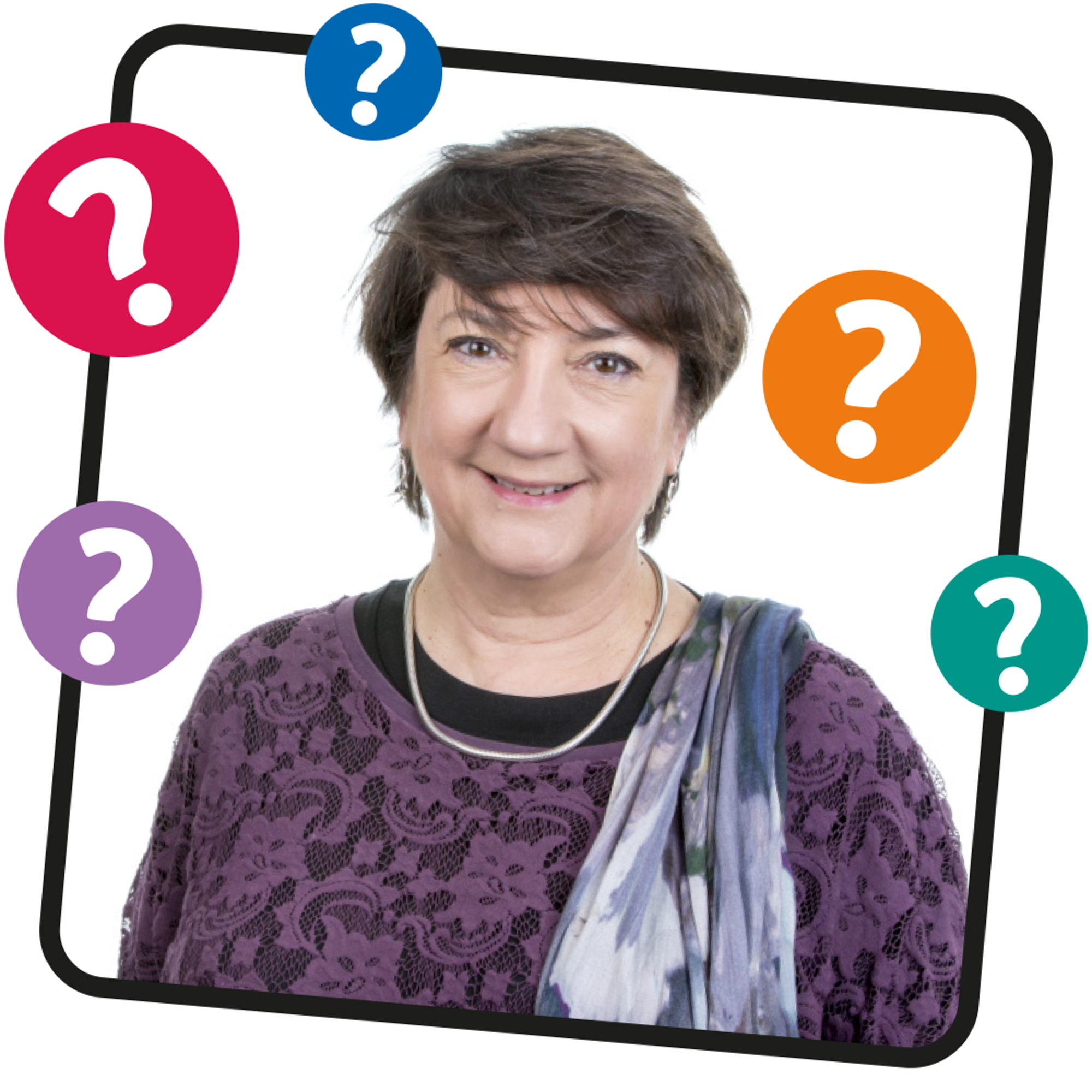
Your questions answered

We put your questions to our former chief executive, Cathy Yelf.
Read her answers below.
"How close do you think we are to a cure?"
I think we’re at the beginning of the journey that could lead to a cure. There is research using exciting technology that has never been done before. All research takes time and although no-one can say how close we are, each piece of research is bringing us closer and giving us the answers to previously unanswered questions. These answers, in time, could indeed lead us to a cure. That is why we must keep funding research.
In the meantime, we are hearing about new developments in treatments - longer lasting injections for patients with wet age-related macular degeneration (AMD) for example. These developments, although not a cure, will continue to make life easier for everyone living with macular disease and are a positive step on our journey to Beating Macular Disease for good.
“How does UK research compare to research going on elsewhere; in Japan, China or the US - for example?”
Although we may not fund as much research as other countries, the quality of our research is unbeatable. Some of the most significant research projects on macular disease are happening right here in the UK. An example of that would be the clinical trial being run by Professor Andrew Lotery from University of Southampton, which is using eye scans of people with early AMD to learn more about the progression of the disease to late AMD and sight loss. Researchers have said this is the most important trial in AMD anywhere in the world. There’s lots of research going on in China, Japan and the US, all of whom have big problems with macular disease, but the work in the UK compares favourably with those countries and is regarded as world-leading.
“Are you excited about the role gene therapy could play in beating macular disease?”
We are very excited by ongoing gene therapy research. If we can identify more and more genes in more and more macular conditions, it gives us a chance to intervene before the disease causes damage to sight. That is what is so exciting. It’s not about treating poor vision, it’s about stopping it happening at all. It’s much easier to do that with some of the macular dystrophies, because they’re often caused directly by a gene, or a few genes. It’s harder with AMD, but not impossible. AMD is a more complex disease, caused by a combination of factors, as well as genes. But researchers are looking into the possibility of preventing AMD with gene therapy.
“Having worked at the Society since 2008, what are the most exciting developments you have seen? How far have we come? And why does this give you hope for the future?”
There are so many. I think the developments in stem cell and gene therapy are very exciting. Also, the advances in eye scans and optical coherence tomography (OCT) have come such a long way. Today these scans are showing us so much, not only about how to treat the disease now, but they will also give us crucial information about what happens in the early stages of the disease, which will allow us to look for cures and treatments more easily, particularly before people start to lose their vision.
“Where do you see the Macular Society in say 10 or 20 years from now?”
Of course we’d like the Macular Society to shut up shop and not be needed anymore in 20 years’ time, but we know this won’t be the case. Sadly, there will still be lots of people needing our support. However, I hope that with your continued support and thanks to everyone who so generously leaves us a gift in their Will, we will be able to fund 10 if not 20 times more research than we do today, as well as help and support every single person who is affected by the devastating impact macular disease can have on our lives.
“What are your own hopes for the future for people with macular disease?”
The ultimate hope is that macular disease is a thing of the past, but it isn’t. So, my hope is that everybody living with or supporting someone with macular disease has the advice, support and information they need to continue to live happy, independent lives.

By leaving a gift in your Will to the Macular Society, you are directly helping people living with macular disease, and contributing to the world-class research that will lead to a cure.
For a copy of our free Gifts in Wills booklet or to ask about making or updating your Will for free through the Macular Society, please fill in the form or get in touch with Julie and the team on 01264 322 410. We’d love to hear from you.
Thank you for Beating Macular Disease
If you’re considering leaving a gift or have already left a gift in your Will to the Macular Society, thank you so much. Your generosity is hugely appreciated, and your thoughtful gift will help create a future without macular disease.
Find out more about leaving a gift in your Will
Gifts in Wills fund the world-class research that will fund a cure for people like Louise and Beat Macular Disease for good.
Request a free Gifts in Wills information pack
By considering a gift in your Will to the Macular Society, you’ll be taking a precious step towards creating a future without macular disease.
Get the latest news and advice from the Macular Society
To hear about life-changing research, treatments and tips for living with sight loss, subscribe to our monthly enewsletter today. Together we can Beat Macular Disease.
Sign up to our free email newsletter




